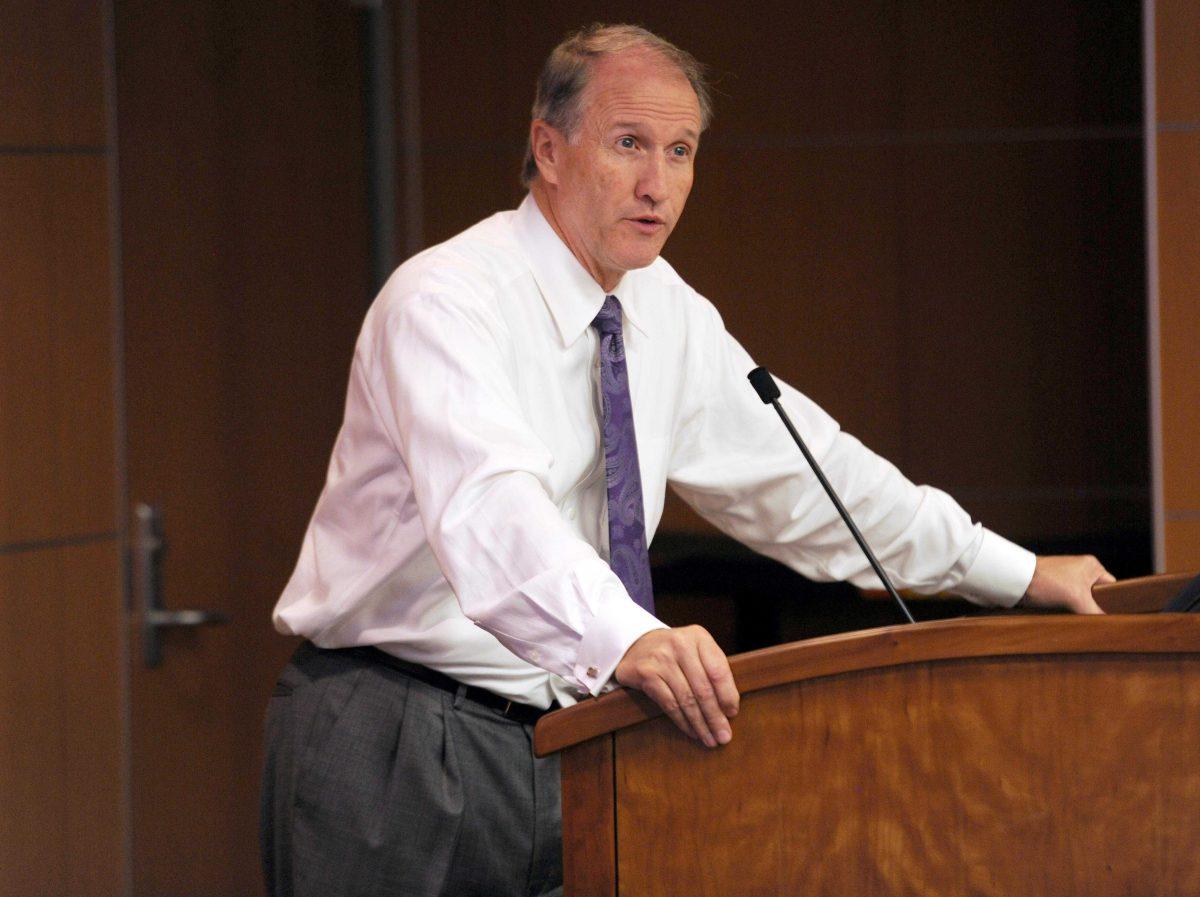Stuart Bell, executive vice chancellor and provost, addressed the University Faculty Senate during its meeting Tuesday with updates on this semester’s dean retreat, a meeting which will focus on four major issues and goals for the upcoming year.
At the retreat, Bell said the group addressed retention, research, online and hybrid education and graduate programs.
The findings from the retreat were the focus of Tuesday’s meeting.
In an effort to identify at-risk students, this year’s class of incoming freshmen were required to fill out a survey to help understand students’ background to indicate academic, social and financial preparation.
“We’re able to identify what services will best match those students,” Bell said. “What will we be doing differently in classes to address those issues?”
Bell said the courses students struggle the most with are classes with the largest enrollment.
“The real retention happens in the classrooms,” Bell said.
He said the focus this year is to strengthen and grow graduate enrollment, especially for the Southern Association of Colleges and Schools Commission on Colleges accreditation review in March.
For the accreditation, the University has to identify a Quality Enhancement Program — this year’s is undergraduate research — to apply and enhance curricula across all programs.
The team reviewing the University’s accreditation will evaluate how the campus has been engaged in the QEP process and provide suggestions. Then, in fall 2014, the program will be implemented, but for now, plans are being tested to prepare for the accreditation.
Additionally, courses and Curricula Committee Chair Lawrence Rouse informed members of the Senate about the new definition of a credit hour and how they should pass on this information to their students.
Rouse said for every hour spent in class, students should spend double that time of work outside the classroom.
For example, if a student is in a lecture for one hour, his or her homework and time spent on classwork outside the class should equate to two hours.
Rouse said this expectation should be outlined in new syllabuses.
“The philosophy is a contract — one with the rest of the faculty and one with the students,” Rouse said.
Additionally, Rouse said even though the attendance policy is not in place yet, professors have to specifically outline the definition of participation in their class in the syllabus.
Some teachers believe participation is about attending class, while others think students should raise their hands in class a certain number of times, Rouse said.
“The real retention happens in the classrooms.”
University to emphasize undergrad research for accreditation review
September 3, 2013
LSU Executive Vice Chancellor & Provost Stuart R. Bell speaks at the Faculty Senate meeting Tuesday, Sept. 3, 2013, in the Capitol Chamber of the LSU Student Union.








